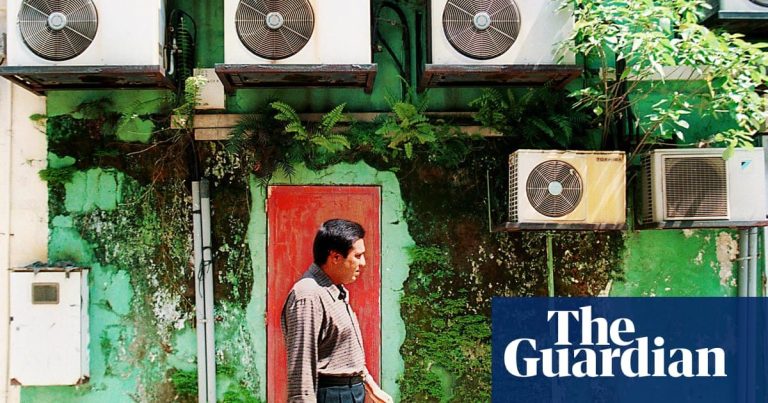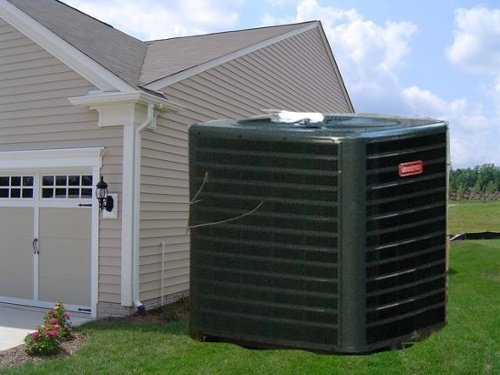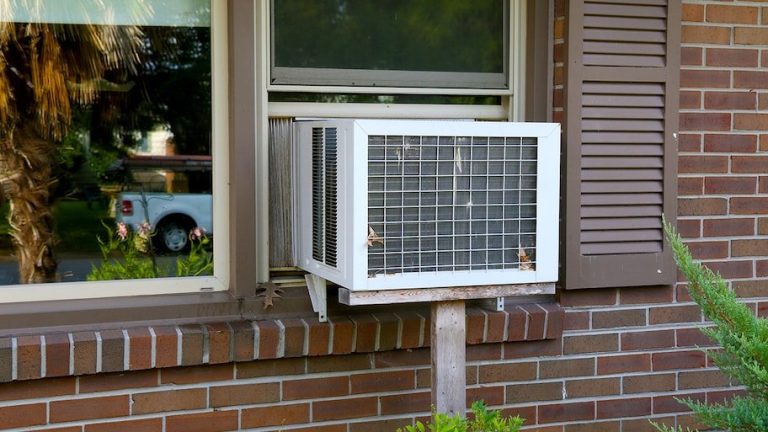How Much Do Air Conditioning Techs Make? Learn About The Earnings Of Hvac Professionals
The average salary of air conditioning technicians varies depending on factors such as location, experience, and qualifications. However, according to the Bureau of Labor Statistics, the median annual wage for HVAC mechanics and installers, which includes air conditioning techs, was $50,590 as of May 2020.
Are you someone who loves working with your hands, solving technical puzzles, and has a passion for HVAC systems? If so, then you’ve come to the right place. In this article, we will explore the intriguing world of air conditioning technicians and answer the burning question on everyone’s mind: how much do they actually make? Whether you’re a beginner exploring potential career paths or an experienced technician looking for growth opportunities, understanding the earning potential of an air conditioning technician is crucial.
However, finding accurate and up-to-date salary information can be challenging. That’s where we come in.
Throughout this article, we will delve into the factors that affect the earnings of air conditioning techs, providing you with the insights you need to make informed decisions. From educational requirements to industry trends, we’ll cover it all. But before we jump into the nitty-gritty details, let’s take a moment to appreciate the importance of this profession.
Think about it – where would we be without the hard work of air conditioning technicians? They ensure that our homes and workplaces are cool and comfortable, especially during scorching summers. They are the unsung heroes behind the scenes, ensuring our comfort and well-being. So, if you’re ready to uncover the secrets of the air conditioning technician profession, join us on this enlightening journey.
The Growing Demand for Air Conditioning Technicians
Have you ever wondered why air conditioning technicians are in such high demand? Well, it’s no secret that the need for air conditioning has become a necessity in our modern lives. As temperatures rise, more and more people are seeking refuge from the sweltering heat, relying on air conditioning systems to keep them cool and comfortable.
This growing demand for air conditioning has created a booming industry that requires skilled technicians to install, maintain, and repair these systems. From residential homes to commercial buildings, air conditioning units have become a ubiquitous presence, and so have the technicians who service them.
With advancements in technology, air conditioning systems have become more complex, requiring specialized skills and knowledge to operate effectively. This complexity, combined with the increasing demand for air conditioning, has led to a surge in job opportunities for technicians in this field.
Factors Affecting Air Conditioning Technician Salaries
When it comes to determining how much air conditioning technicians make, there are several factors that come into play. These factors can vary depending on the location, level of experience, and specific industry. Let’s take a closer look at some of the key factors that affect air conditioning technician salaries.
1. Geographic Location
One of the most significant factors influencing air conditioning technician salaries is the geographic location. Salaries can vary substantially from one region to another due to factors such as cost of living, demand for technicians, and local economic conditions.
For example, technicians working in densely populated urban areas or metropolitan cities may earn higher salaries due to higher demand and a higher cost of living. On the other hand, technicians working in rural areas or regions with a lower cost of living may earn lower salaries.
It’s important to consider the local market conditions when assessing the earning potential for air conditioning technicians in a particular area.
2. Level of Experience
Experience plays a significant role in determining the salary of an air conditioning technician. As with many professions, technicians with more experience generally command higher salaries.
When starting out in the field, technicians may begin at an entry-level position with a lower salary. However, as they gain more experience and develop their skills, they have the opportunity to advance in their careers and earn higher salaries.
Technicians who have obtained certifications or completed specialized training programs may also have an advantage when it comes to salary negotiations. Employers often value certifications and additional training, as they indicate a higher level of expertise and commitment to professional development.
3. Type of Industry
The industry in which an air conditioning technician works can have a significant impact on their salary. There are various sectors that employ air conditioning technicians, each with its own salary ranges and job prospects.
For instance, technicians working in the residential sector may be employed by HVAC companies or work as independent contractors. Their salaries may be influenced by factors such as the size and reputation of the company, the type of clientele they serve, and the geographic location.
On the other hand, technicians working in the commercial or industrial sectors may find employment in large-scale HVAC systems that require specialized knowledge and skills. These positions may offer higher salaries due to the complexity and scale of the systems being serviced.
Educational Requirements for Air Conditioning Technicians
While formal education is not always a requirement for becoming an air conditioning technician, acquiring certain certifications and licenses can significantly enhance career prospects and earning potential.
Many aspiring technicians choose to complete a vocational or technical training program specifically focused on HVAC systems. These programs provide a comprehensive understanding of air conditioning systems, electrical components, refrigeration, and system design.
In addition to vocational training, there are various industry-recognized certifications that technicians can pursue to demonstrate their expertise and enhance their employability. Some of the most popular certifications include:
- North American Technician Excellence (NATE) Certification
- Environmental Protection Agency (EPA) 608 Certification
- Refrigeration Service Engineers Society (RSES) Certification
These certifications validate the technician’s knowledge and skills in specific areas of air conditioning systems, such as installation, maintenance, and repair.
The Future of Air Conditioning Technicians
The future looks bright for air conditioning technicians as the demand for their services continues to grow. As global temperatures rise and the need for cooling solutions becomes even more prevalent, the importance of skilled technicians will only increase.
In addition to the growing demand, advancements in technology and the push for energy-efficient systems are shaping the industry. Air conditioning technicians who embrace these changes and stay up-to-date with the latest developments will be well-positioned to thrive in the future.
Furthermore, the HVAC industry offers opportunities for career advancement and specialization. Technicians who acquire advanced certifications, gain experience in niche areas, or pursue leadership roles can open doors to higher salaries and more challenging positions.
So, if you’re considering a career as an air conditioning technician, now is a great time to enter the field. The demand is high, the earning potential is promising, and the industry is constantly evolving.
To summarize, air conditioning technicians play a crucial role in ensuring our comfort and well-being. The salaries of these technicians can vary based on factors such as geographic location, level of experience, and industry. By obtaining the necessary education and certifications, technicians can increase their earning potential and enhance their career prospects.
So, if you’re passionate about HVAC systems, enjoy hands-on work, and love problem-solving, a career as an air conditioning technician could be a perfect fit for you. Explore the possibilities, seize the opportunities, and embark on an exciting journey in the world of air conditioning technology.
Portable Air Conditioners – Why you shouldn't like them
Frequently Asked Questions (FAQ)
How much do air conditioning techs make?
What factors can affect an air conditioning tech’s salary?
Do air conditioning techs receive any benefits?
Are there any opportunities for career advancement in this field?
Is there a high demand for air conditioning techs?
Final Summary: The Growing Demand and Opportunities for Air Conditioning Technicians
In conclusion, the demand for air conditioning technicians is on the rise as the need for cooling solutions becomes more prevalent. The industry offers numerous job opportunities for technicians who possess the necessary skills and knowledge to install, maintain, and repair air conditioning systems.
Factors such as geographic location, level of experience, and industry can significantly impact the salaries of these technicians. Geographic location plays a crucial role in determining technician salaries, with densely populated urban areas typically offering higher salaries due to higher demand and a higher cost of living.
Additionally, the level of experience also influences salaries, as technicians with more experience generally command higher pay. Obtaining certifications and specialized training can also enhance earning potential. The type of industry in which technicians work can also impact their salaries.
Technicians in the residential sector may work for HVAC companies or as independent contractors, while those in the commercial or industrial sectors may service large-scale HVAC systems that require specialized knowledge and skills. While formal education is not always required, completing vocational or technical training programs focused on HVAC systems can provide a comprehensive understanding of air conditioning systems and enhance employability. Industry-recognized certifications, such as NATE, EPA 608, and RSES, can also validate technicians’ knowledge and skills.






